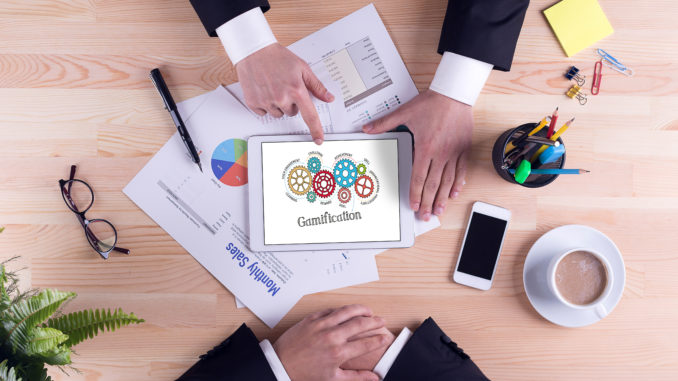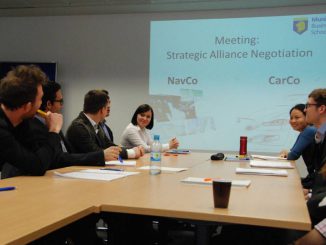
One week at home with the family is fairly easy for everyone, going beyond that creates challenges. These challenges can take the form of not only children climbing the walls due to pent up energy, but also parents displaying their frustration. Some of us are maybe busy attempting to be a teacher and still work, some of us are maybe trying to deal with parents again after finally gaining some freedom after moving away to university, and some of us may be stuck in a very small sufficiency apartment, and some of us may just be wondering if we have now viewed all Netflix and Amazon Prime movies worth watching. The end result for most is sinking productivity, lacking satisfaction or even frustration.
One method for dealing with this is to add some of the basic tools of gamification. Games are fun, they can be adapted to your current situation, and can help improve satisfaction for everyone.
Health Benefits
While we are all stuck inside for the majority of the day, crucial aspects to remaining healthy are remaining physically and mentally fit. If we are living with others it is also a matter of communicating and ensuring the others are also staying healthy. Remaining physically fit can be achieved nowadays via an app such as 7, where the goal is seven minutes of daily exercise. Everyone has seven minutes. And, going for at least one walk daily and eating healthy. Remaining mentally fit is more challenging. Talking with others and talking about positive topics is a great start. For example, asking others what they liked about the day and what they look forward to can help strengthen the immune system. Laughter is another great way to promote health and the immune system. Should (or when) we catch COVID19, “healthy in” improves the speed of a positive outcome.
Getting started
A key is identifying the personalities of those and yourself. It does not need to be a competitive exercise to see who can do more as a merely point based system. Maybe it is a checklist of completing a certain number of things per day and per week, or just completing certain tasks that have been put off.
Next up is to consider the goals. What should each person learn? What is it that each person wants to achieve? What is the target behaviour you are after for each “player” (for example: maybe it is for curbing certain behaviours like elbows on the table at dinner)? Is there a trend in the goals for each player?
What can be established as milestones? Is there a daily or weekly feedback for completing certain targets? How are you going to raise the level of challenge (example: do the targets become 10% more difficult each week)? While gamification is all about learning, let’s also stay healthy in this game too!
Once the goals and the players have been considered, make a few simple rules to follow, and the most basic version of a game is now set. Players vs the Corona situation. Next we will write an additional blog with ways to add further challenges, and gain further understanding of gamification, for your “remaining healthy while staying at home due to COVID19 game”. Below are a few ideas of points to consider to make it fun.
What is the goal for each person and yourself? Is there something to learn? Something that just needs to be completed?
Sample Ideas for Things to Look Forward to as an Extrinsic Motivator:
- eating at a favorite restaurant
- going hiking
- joining a new class (cooking, music, art)
- going to a movie theater
- a party with a few friends
In the end there are many extrinsic rewards we can set for ourselves, what’s yours?
Sample Ideas for Items to Gamify:
- contacting others (friends, relatives, elderly acquaintances, former neighbours) this can be done by phone, having children create a card, or a video talk.
- tackling the list of cleaning items that never seems to get done
- family game night. Nowadays we can play games online with friends, or have a family game night instead of separating into different rooms to watch Netflix again
- tell others what you learned during the day
- tell others what you liked about the day
- tell others what you look forward to tomorrow
- successfully exercising social distancing
- working out and exercising
- time for daily reading
- maybe children need to do more cleaning up
- search for unique places to make a donation to, and make a small donation
- beginning with something you’ve always wanted to learn
- or maybe for some it is just rewarding to still get out of bed as if going to work/school each day
An example for Player 1:
Player 1 wants to go to her favourite Italian restaurant. Design your game to include steps related to the Italian restaurant. Are there Italian recipes that can be easily prepared at home? Does the player know what the typical seasonings are and how to identify them (lots of fun playing short blindfolded smell tests with children)? For a younger player, the fun around pizza dough is very exciting (making it, learning about it, rolling it out, covering it in sauce, learning which cheeses melt best and testing it too, and of course eating it). For a more advanced player, there isn’t a shortage of good recipe ideas.
An example for Player 2:
Player 2 is really looking forward to going hiking again. What level of fitness is needed to hike one’s favourite trail? What is being done on a daily/weekly basis to remain fit for the hike? Which muscles are needing strengthening? What are the different muscles called? Which exercises are best for which muscles?





